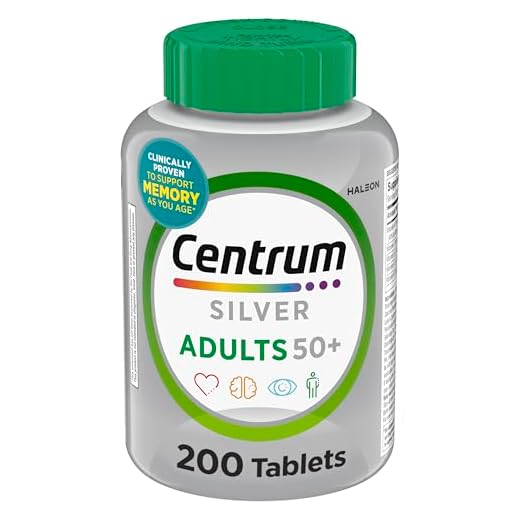







Multivitamins can play an important role in your overall wellness by filling nutritional gaps in your diet. They're especially beneficial for specific groups, like older adults, pregnant women, and those with dietary restrictions. Some studies suggest multivitamins may reduce the risk of certain diseases, like cancer, but overall evidence is mixed. While they can support health, relying solely on supplements isn't a substitute for a balanced diet rich in whole foods. It's vital to choose high-quality products to avoid potential risks associated with excessive intake. If you're curious about the nuances of supplementation, there's more to uncover.
Key Takeaways
- Multivitamins can help fill nutritional gaps in diets, especially for specific populations like pregnant women and older adults.
- Regular use of multivitamins may reduce the risk of certain health issues, such as cancer, as indicated by some studies.
- They support overall wellness by providing essential vitamins and minerals that may be lacking in a person's diet.
- Targeted supplementation based on individual deficiencies is often more effective than general multivitamin use for optimal health benefits.
- Overuse of multivitamins can lead to toxicity, especially with fat-soluble vitamins and excessive iron intake, posing health risks.
Overview of Multivitamins
Multivitamins are widely recognized dietary supplements that combine various vitamins, minerals, and nutrients to help fill nutritional gaps in your diet. With over 50% of American adults regularly taking multivitamins, their popularity reflects a growing interest in supporting overall health. The multivitamin market was valued at approximately $30 billion in 2022, highlighting their widespread use. While they can help fill nutrient gaps in poor diets, it's vital to remember that a balanced diet rich in whole foods provides more diverse benefits than multivitamins alone.
While many people take multivitamins in hopes of enhancing their health, the scientific evidence supporting these benefits is mixed. Commonly advertised advantages include improved bone health, enhanced immune function, and increased energy levels. However, it's important to recognize that these claims may not apply universally. Approximately 70% of older adults use vitamin or mineral supplements to address potential nutrient deficiencies associated with aging, making targeted supplementation important in this demographic.
Multivitamins come in various forms, including tablets, capsules, powders, and gummies, offering options to suit different preferences. Recommended dosages generally range from once to twice daily, based on product labeling. While they can play a role in achieving a healthy diet, it's crucial to view them as a complement, not a substitute, for balanced nutrition and lifestyle choices.
Benefits for Specific Populations
Certain populations can derive significant benefits from multivitamin supplementation due to their unique nutritional needs. For instance, pregnant women often require higher levels of folic acid, which is essential for fetal development and helps prevent congenital disabilities. Multivitamins tailored for this group, like the DEVA Vegan Prenatal Multivitamin, can guarantee they meet these increased nutritional demands while providing thorough support for both mother and baby.
Older adults may face decreased nutrient absorption, making multivitamins vital for maintaining health. Supplements containing vitamin B12, calcium, and vitamin D can support bone health and cognitive function, addressing common deficiencies in this age group.
Vegans and vegetarians are at risk for deficiencies in vitamin B12, iron, and omega-3 fatty acids. A well-formulated multivitamin can help fill these gaps, promoting overall wellness.
Individuals recovering from weight loss surgery often struggle to obtain adequate nutrients from food alone, and multivitamins can bridge the dietary gaps created by their restricted intake. Additionally, research suggests that women of childbearing potential can benefit from multivitamins that include iron and folic acid, supporting reproductive health and preventing anemia. By understanding these unique needs, you can make informed choices about multivitamin supplementation for specific populations.
Scientific Evidence and Research
Recent studies have sparked interest in the potential health impacts of multivitamin supplementation. The Physicians Health Study II found that multivitamins led to an 8% reduction in cancer diagnoses among male participants with a prior cancer history, suggesting possible benefits in this group. However, a broader analysis involving 450,000 individuals indicated that multivitamins didn't greatly reduce the risk of heart disease or cancer, revealing mixed results regarding overall wellness.
Additionally, senior-specific multivitamins can help address age-related deficiencies, benefits and key ingredients important for supporting overall health. Further research involving 5,947 men over 12 years showed no notable effect of multivitamins on mental decline, hinting at limited cognitive benefits from their use. Some studies also raise concerns about high doses of vitamins A and E, indicating that not all components of multivitamins contribute positively to health.
The current evidence remains inconclusive, emphasizing the need for ongoing research to clarify the long-term effects and specific health benefits of multivitamins. While they may help address nutrient deficiencies for some individuals, the evidence behind their effectiveness varies considerably. As a result, it's crucial to approach multivitamin use with a balanced perspective, considering both potential benefits and limitations.
Potential Risks and Side Effects
Taking multivitamins might seem like a straightforward way to boost your health, but there are potential risks and side effects to evaluate. High doses of fat-soluble vitamins, like A and D, can accumulate in your body, leading to toxicity and serious health issues. You may also experience gastrointestinal side effects, such as stomach upset or nausea, especially if your multivitamin contains iron.
Excessive intake of certain nutrients, particularly iron, can pose significant health risks, especially for men and individuals with conditions like hemochromatosis, who already absorb iron more efficiently. Additionally, multivitamins can interact with prescription medications, potentially altering their effectiveness or increasing the risk of adverse effects.
Another concern is the lack of rigorous regulation by the FDA, meaning some multivitamin products may include harmful additives or inaccurate ingredient amounts. This poses additional safety concerns that you should keep in mind when considering multivitamins. While they can be beneficial, it's important to be aware of these risks to make informed decisions about your health and supplement use.
Quality Control in Supplements
Quality control in supplements is essential for ensuring that what you consume matches the claims made on the label. The FDA doesn't regulate dietary supplements as strictly as prescription drugs, which can lead to significant variability in quality and potency among multivitamin brands. In fact, about 30% of dietary supplements might not contain the ingredients listed, underscoring the importance of choosing products from reputable manufacturers.
To safeguard your health, look for multivitamins that have undergone independent testing from organizations like USP or NSF International. These certifications can assure you of product quality and ingredient accuracy. Quality control measures, including Good Manufacturing Practices (GMP), are vital in supplement manufacturing, ensuring that products are consistently produced to meet safety standards.
Dietary Recommendations
A balanced diet plays an essential role in your overall wellness, providing essential nutrients that multivitamins may not fully supply. To maximize your nutrient intake, focus on incorporating a variety of fruits and vegetables into your meals. Aim for two or more servings per meal; this can greatly enhance your nutrient intake and support better health outcomes.
Dietary recommendations emphasize the importance of consuming nutrient-dense foods such as whole grains and low-fat dairy, which are integral to a well-rounded diet. The CDC specifically advises women of child-bearing potential to consume 400 micrograms of folic acid daily to prevent neural tube defects, highlighting the need for targeted nutrient intake.
While supplements like multivitamins can be beneficial, relying solely on them can lead to overconsumption and potential toxicity. Instead, prioritize reducing saturated fats, trans fats, sodium, and sugars in your diet. By emphasizing whole foods over supplements, you not only improve your nutrient intake but also enhance your overall health and well-being. Remember, a balanced diet is your best strategy for achieving ideal wellness.
Multivitamins Vs. Whole Foods
When it comes to your health, the debate between multivitamins and whole foods is significant. Whole foods—like fruits, vegetables, whole grains, and lean proteins—offer a complex matrix of nutrients and phytochemicals that work synergistically, promoting peak health. In contrast, multivitamins often lack these interactions and may not deliver the same benefits. Research suggests that relying on a balanced diet of whole foods is more effective for preventing chronic diseases than taking supplements, which show mixed results.
A diet rich in whole foods is linked to lower risks of heart disease, diabetes, and certain cancers, while multivitamins alone don't guarantee the same protective effects. Additionally, whole foods improve nutrient absorption and bioavailability, making it easier for your body to utilize these essential nutrients. Experts recommend prioritizing nutrient-dense foods over multivitamins, especially since around 70% of adults aged 65 and older use supplements, yet many do not see significant improvements in health outcomes. To conclude, while multivitamins can supplement your diet, they shouldn't replace the substantial benefits that whole foods provide for your overall wellness.
Usage Trends and Statistics
Reflecting the growing interest in health and wellness, approximately 50% of American adults regularly take multivitamins, a trend that greatly increases among older populations. In fact, about 70% of people aged 65 and older include these supplements in their daily routines. This surge in usage aligns with broader dietary supplement trends, where multivitamins and multiminerals account for 14% of all purchases in the U.S.
In 2020, the total U.S. dietary supplement sales reached an impressive $55.7 billion, with vitamins and minerals contributing $21.2 billion to this figure. Within this market, the multivitamin segment alone generated $8.0 billion in sales, highlighting significant consumer interest in these products.
Notably, one-third of U.S. adults consume multivitamins, reflecting varied usage rates across different demographics. Factors such as age and health status play an important role in these trends, impacting how people perceive their diets and nutritional needs. As you navigate your path to a healthy lifestyle, understanding these usage trends can help you make informed decisions about including multivitamins in your daily diet.
Expert Opinions on Supplementation
As multivitamin usage continues to rise among various demographics, expert opinions on their role in health and wellness offer valuable insights. While experts say that multivitamins can help fill gaps in your diet, they shouldn't replace a balanced diet rich in whole foods. A study known as the Physicians Health Study II indicated that a Daily Vitamin might reduce the risk of cancer by 8%, especially in men with a previous cancer diagnosis. However, the overall benefits remain mixed.
Health professionals often caution against relying solely on multivitamins, emphasizing that targeted supplementation based on individual deficiencies is generally more effective. This is particularly relevant for older adults, who may struggle to absorb certain vitamins and minerals like B12, calcium, and vitamin D due to age-related issues.
It's also essential to heed medical advice, as high doses of specific vitamins found in multivitamins, such as A and E, can lead to toxicity or adverse health effects. Ultimately, while multivitamins can play a supportive role in your wellness journey, they should complement, not replace, a nutritious diet.
Conclusion
In conclusion, multivitamins can be beneficial, especially for those with specific dietary needs, like pregnant women who require extra folic acid. However, they shouldn't replace a balanced diet rich in whole foods. For instance, a busy professional might rely on a multivitamin to fill nutrient gaps, but it's essential to prioritize fruits and vegetables for best health. Always consult a healthcare provider to tailor supplementation to your individual needs, ensuring a balanced approach to wellness.







